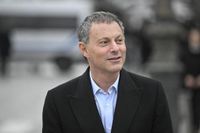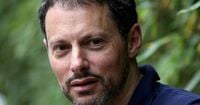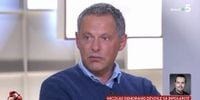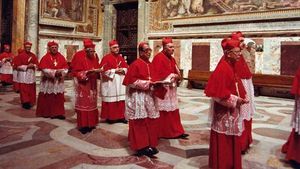On March 26, 2025, renowned media figure Marc-Olivier Fogiel made a heartfelt appearance on the French television show C à vous, where he opened up about the bipolar disorder of his late father, Jean-Michel. This candid discussion followed a public revelation by fellow journalist Nicolas Demorand, who shared his own experiences with bipolarity, prompting Fogiel to reflect on his father's struggles with the condition.
Fogiel, who has transitioned from a prominent career in media to humanitarian work, revealed that his father, a dentist who passed away in 2012, lived much of his life in silence regarding his mental health issues. "I find it courageous, especially since I know this illness well, as my father suffered from it," Fogiel stated, acknowledging the stigma surrounding mental health in their family. "Back then, we didn't call it bipolarity; we referred to it as manic-depression. I know its ravages well. It was something we didn’t share, and my father had patients, making it difficult to trust a healthcare professional with such a condition," he explained.
Fogiel's emotional testimony highlighted the challenges of living with a loved one who suffers from bipolar disorder. "We rise very high, then fall very low. He always fought and was well-supported, but we were raised in that secrecy. It was a heavy secret to bear, and it's very disturbing. This is the first time I’m talking about it," he shared, expressing both the pain of his father's struggles and the relief of finally addressing the issue publicly.
In addition to discussing his father's mental health, Fogiel also shared insights from his recent humanitarian mission with UNICEF in Bangladesh, where he witnessed the dire consequences of malnutrition. This trip marked a significant shift in his career, as he stepped away from the role of director general at BFMTV in October 2023 to focus on humanitarian efforts.
Fogiel, now 55, described his experience in Bangladesh as both eye-opening and humbling. He undertook the mission discreetly, choosing not to publicize it widely to fully absorb the experience. "I didn’t want to media-fy it or share it too much, to fully experience these things. Even though everything is well organized by UNICEF and you feel safe, there’s a part of risk, especially in Cox's Bazar, a city where violence, drugs, and arms are prevalent," he explained.
His trip was not without concern from his family. Fogiel recounted a poignant moment when his 11-year-old daughter sent him a message just before his departure, saying, "Please, Dad, don't die." To which he reassuringly replied, "Don’t worry, that’s not on the agenda." This exchange underscores the emotional weight of his work and the fears that accompany such humanitarian missions.
Upon returning home, Fogiel made it a point to share his experiences with his daughters, Mila, 14, and Lily, almost 12. "I showed them pictures and shared a lot with them. They are growing up knowing they are incredibly lucky. My husband, François, and I try not to raise them with guilt, but to enjoy the happiness we have while being aware of the difficult world around us," he reflected, emphasizing his commitment to instilling a sense of gratitude and awareness in his children.
In a recent interview with Paris Match, Fogiel also addressed his professional future, hinting at a potential return to the media landscape but not feeling pressured to resume work immediately. "I want to work, but not with the same intensity. I feel like I need time for myself. Not necessarily to lie on a beach and sunbathe, but to return with a desire that is nourished by experiences I have fully assimilated," he noted.
When asked about the possibility of running for the presidency of France Télévisions, Fogiel expressed respect for the current president, Delphine Ernotte, stating he would not run against her. "I get along very well with her. As long as she is running for the presidency, I won’t run against her. I have too much respect for her. We discuss many projects, but nothing concrete is in place at the moment. I meet people at my own pace, listen to what they have to say, and we will decide, calmly, at the right time," he said.
Fogiel's journey from a leading media figure to a humanitarian advocate illustrates a profound transformation, as he seeks to leverage his platform for meaningful change while navigating the complexities of his personal life. His willingness to share his father's story and his own experiences with mental health and humanitarian work resonates deeply, shedding light on the often-hidden struggles surrounding these issues.
As Fogiel continues to balance his roles as a father, a humanitarian, and a potential media leader, his narrative serves as a reminder of the importance of compassion, understanding, and the need to address mental health openly. His journey reflects not only personal growth but also a commitment to making a difference in the world, one step at a time.






